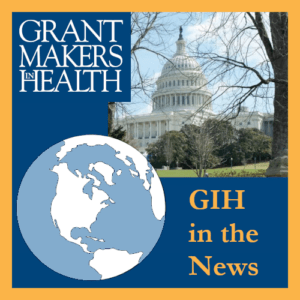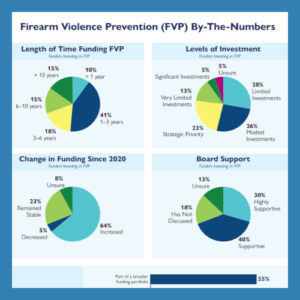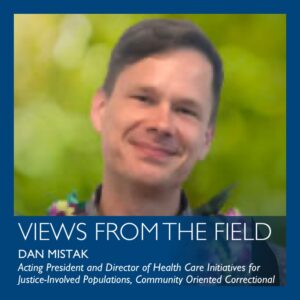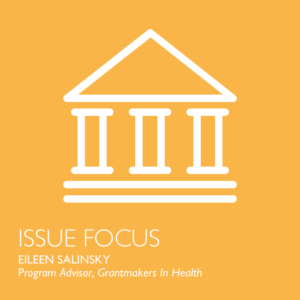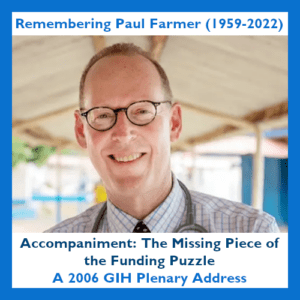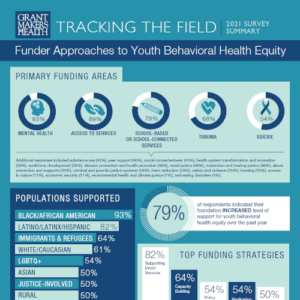Upcoming Events
Past Events
Explore Health Equity and Social Justice Topics
Recent Items - Climate and Environmental Health
Recent Items - Health Equity
Recent Items - Healthy Eating/Active Living
Kate B. Reynolds Charitable Trust: October 2025
Recent Items - Housing
Marin Community Foundation: October 2024
Horizon Foundation: September 2024
Recent Items - Justice Reform
Recent Items - Social Determinants of Health
North Carolina Healthcare Foundation: January 2026
Marin Community Foundation: October 2024
Recent Items - Violence Prevention
The Joyce Foundation
Latest Resources
What Do We Stand For?
One year ago, as we were just one month into the new administration, I wrote that “At a moment when so much has been described as ‘unprecedented,’ and so much of what we value is being attacked, we need to ask ourselves as individuals, organizations, and a field, what do we stand for? What values do we hold, and what will we do and say to defend them?” Today, the answers to these questions are needed more urgently than ever.
Medicaid and Community Violence: Pathways to Sustainable Care
American cities are witnessing historic declines in gun violence. In recent years, cities like Baltimore, Philadelphia, and Chicago have all seen precipitous drops in homicides, with some reaching multi-decade record lows (Washington Post 2025). While there are many causes of this decline, experts in the field point to community violence intervention as driving the trend.
Blue Cross Blue Shield of Massachusetts Foundation: January 2026
Blue Cross Blue Shield of Massachusetts Foundation released a chart pack which provides an overview of the public coverage programs in Massachusetts, explains the key Medicaid and Marketplace provisions in H.R.1, and elevates what is known about how these provisions will impact the coverage landscape and the health care delivery system in Massachusetts.
Practicing What We Preach: Three Tips for Putting Equity at the Heart of a Successful Application Process
Every step of the grant application process
— from initial outreach to final award notification — provides opportunities for funders to either reinforce inequities or dismantle them. The grant application process is often the first barrier that organizations encounter when seeking funding. If designed without an intentional focus on equity, the application process can advantage well-resourced organizations, while disadvantaging equally or better qualified organizations that have fewer resources.
Closing Remarks: 2025 Health Policy Exchange
President and CEO of Grantmakers In Health (GIH), Cara V. James, delivered closing remarks at the 2025 Health Policy Exchange, “Protecting the Freedom to Give” in Arlington, Virginia.
The Role of Health Philanthropy in Improving Maternal Health for Underserved Populations
Although the United States is a high-income nation, it experiences a significant burden of maternal mortality incidence relative to other countries. In 2023, non-expansion Medicaid states had 27.7 percent higher pregnancy-related deaths than expansion states. The COVID-19 pandemic also exacerbated racial disparities in pregnancy-related deaths. Historically, marginalized populations, including low-income populations and Black and Indigenous communities are more vulnerable to preventable pregnancy-related deaths.
Reports and Publications
Civic Engagement Is a Social Determinant of Health
What is the civic health of the communities you serve? Are community members equitably engaged in democratic processes and civic life? How might increased levels of civic engagement influence the distribution of public sector resources, population health outcomes, and health inequities? Is it possible to imagine transformative changes in community health absent a meaningful shift in community power and civic participation?
Accompaniment: The Missing Piece of the Funding Puzzle
We continue to be inspired by the plenary remarks Dr. Paul Farmer gave at Grantmakers In Health’s 2006 Annual Meeting on Health Philanthropy.
Funder Approaches to Youth Behavioral Health Equity
Even before the pandemic, the mental health and well-being of adolescents and young adults was worrisome and worsening. COVID-19 has exacerbated these trends and heightened existing disparities. GIH surveyed its Funding Partners in October 2021 to better understand how health foundations are addressing youth behavioral health equity. The survey results are summarized in an infographic that provides a useful snapshot of primary funding areas, types of populations supported, and top funding strategies.
Strengthen your knowledge, skills, and capacity.
GIH focuses our programming around five areas that are critical to achieving better health for all.
We invite you to explore the resources available on our focus areas pages, browse content in more specific issue areas, and to connect with GIH staff to discuss how we can partner and support your work.




